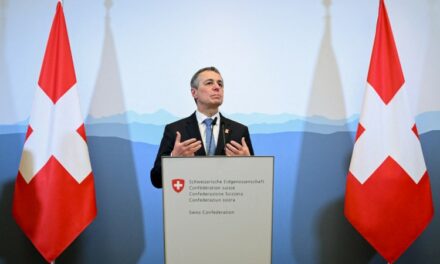The voters were disappointed in the politician who accumulated scandals.
People do not like Péter Magyar, the aggressive politician who accumulates scandals, harasses young girls and lies throughout the campaign, according to the latest research of the Publicus Institute. The president of the Tisza Party was not happy with the results of the survey about his rioting in the city center, so he joined the head of the Publicus Institute.
Péter Magyar, the president of the Tisza Party, and András Pulai, the director of the Publicus Institute, fell out over a morning Index article reporting on the results of a public opinion poll.
In the most recent research of the Publicus Institute, obtained by the portal, the voters' opinion on Péter Magyar's public life was examined, and the Tisza Party president did not like the results.
The survey conducted between June 28 and July 4, on a representative telephone sample of 1,000 people, investigated two topics through these two questions:
1. Péter Magyar, although he previously promised otherwise, has now taken a seat in the European Parliament. Do you think you made the right decision?
2. Did you hear that Péter Magyar, the vice-president of the Tisza Party, got into a fight at a nightclub in the capital, flirted with young girls and was thrown out by security guards, and may have thrown a phone into the Danube?
Péter Magyar had previously ruled out sitting as a representative in the European Parliament, and then changed his position and made the acceptance of his mandate dependent on the position of his followers by asking strongly directed questions. In the last interview given to Telex, he justified this by saying that he was much more pessimistic about the results before the elections, but with the seven mandates won by the Tisza Party, a fundamentally different situation arose than he had expected during the campaign.
39 percent of all surveyed respondents believed that this decision was rather wrong, while 38 percent said that it was the right decision.
Those with a higher education level were more likely to approve of the decision. 41 percent of those with a maximum of eight primary educations did not agree with the acceptance of the mandate, but only 34 percent of those with a higher education did not agree. According to Lókóhely, the people living in the apartment building mostly agreed with Péter Magyar's decision.
The politician also stated in the aforementioned interview that he learned many lessons from the "party scandal" that occurred at the Ötkert nightclub, his main conclusion being that as the leader of a "30 percent party" he is no longer a private individual.
He has to choose between himself and the political entity, he declared that Péter Magyar did not exist as an individual for two years.
The Publicus Institute's research shows that most people in Budapest (by definition) have heard of Péter Magyar's nocturnal story, based on the age distribution, those over 60, while the fewest are between 18 and 29.
The polling company also looked at what those who heard about what happened, according to their party preferences, thought about whether there really was a fight in a nightclub. Most supporters of Fidesz-KDNP thought it was true that this could have happened, followed by opposition voters, and least of all Tisza Party sympathizers, but also the majority of them: 61 percent.
59 percent of the supporters of the Tisza Party agreed with the fact that he danced with young girls in a manner unworthy of a leading politician, while most of the voters of the governing parties (87 percent) thought so. They also asked how the opinion formed about Péter Magyar changed as a result of all these events.
Among the respondents, Péter Magyar's reputation deteriorated the most among the 60+ age group (33 percent), while the least among Tisza Party voters and representatives of the youngest generation.
Péter Magyar wrote the comment under the article shared on Facebook, who tried to discredit the company conducting the survey by saying that in February the party of the fallen Prime Minister Ferenc Gyurcsány was still at 24 percent, which finally reached eight percent in June. Pulai responded to this in a comment, and wrote that the Tisza was still at zero percent in February, and expressed his joy that he got away with this comment from Magyar, because the EP representative involved in the disco scandal with the teenagers could have beaten him.
Péter Magyar accused the director of Publicus of lying because, according to the Tisza president, the company was already trying to make corrections when the election was approaching, when the DK was overestimated by only six percent and the Tisza Párt underestimated by four percent.
In addition, he asked Pulai whether the survey was jointly ordered by DK or Fidesz online.
The Publicus leader did not remain in debt with the answer and drew Magyar's attention to the fact that a survey does not examine a future state, but records a past moment, and that public opinion is not stable, it is in constant motion, changing from week to week, or even from day to day. Addressing Hungarians, he emphasized: it is a completely self-serving lie to choose a date, thus a research from the past, and then apply it to the present.
At this point, Péter Magyar changed to a sharper tone, because according to him, it became clear that Pulai lied when he talked about the February measurement, because according to Magyar, it turned out that in both May and June, totally false data about the parties' support was produced.
And he wants anyone to believe that his current survey - for which he does not reveal who paid for it - is authentic. And by the way, as the head of an "independent" institute, he makes personal comments about the leader of a party who criticizes him... - wrote Magyar.
In his reply, András Pulai claimed: Magyar tries to remove things and cases that are unpleasant for him from the public or to discredit them by starting to bully everything and everyone who has anything to do with the given case.
“This is anything but un-European behavior, I suggest you try to face it. And this applies not only to bullying with comments, but also to the phone that may have been taken or the threat of breaking a finger," said the director of Publicus.
Cover photo: Péter Magyar
Source: Facebook/Tisza Party













